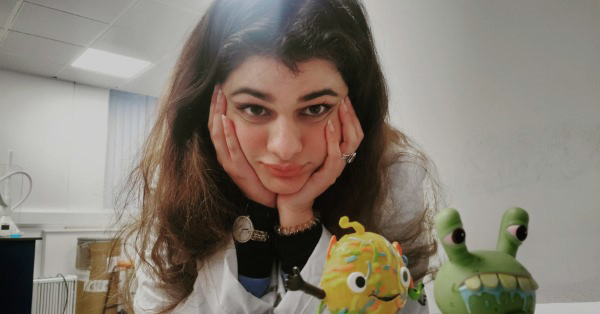Special Issue - Work-Life Balance in Academia
Newsletter
Researchers often become deeply immersed in their work, prioritizing research goals above all else. However, this narrow focuas can hinder career development and overall well-being. Cultivating essential skills beyond research expertise is crucial for professional growth and success. Additionally, taking regular breaks and establishing a healthy work-life balance are essential for maintaining productivity, creativity, and overall health.

“Life will get better – you just have to get past the PhD”. I have heard this phrase constantly as I struggled to achieve work-life balance during my time as a Marie Curie fellow. When I got my first job as a postdoc after my PhD, I easily fell into the routine of working extra hours in the lab, a habit I acquired during my PhD time. After all, science is exciting, and I want to work on multiple projects and test those challenging hypotheses. Now, being a postdoc at Harvard has increased the urge to work on multiple projects and pursue additional career development programs, but at what cost? As a newly appointed postdoc, I want to know more about recent developments in my field, network with other like-minded professionals, and achieve results for the projects in less time. Does life get better after getting a PhD?
A major problem facing the postdoc in today's world is intensive training and the expectation to do more in less time while being consistently underpaid; a phenomenon faced by early-career researchers around the world. Conventionally, a postdoc is an intermediate position required prior to acquiring a faculty position, but is it necessary? And how much time should be spent on training and gaining additional research experience after the PhD? Women and individuals from underrepresented backgrounds have more difficulty maintaining that balance and moving into more independent leadership positions, so they tend to choose this conventional postdoc route.
As an early career researcher, I also strive to arrive at the perfect answer: “how much is enough before I can achieve that leadership position.” After discussion with scientists, colleagues, seniors and leaders of the research groups and industry, I have come to the conclusion that this question does not have a definitive answer, but really depends on what an individual's career path/plan is. However, I have come across many suggestions for maintaining that work-life balance and the time to achieve that more independent position which are summarized below:
• The post-doc is not a validation of the work you have done in your PhD- the degree and experience itself has given you enough knowledge to be an independent thinker and a researcher. Postdoc is just another experience that you should opt to increase your network and to understand the expectations in the mid-career stages of your life.
• While 75% of your work should be allocated to your postdoc projects- the next 25% of your time should be really focused on your future career plans e.g., writing the grants, understanding the “market” or “policy” that requires your research, networking, training on new techniques and possibly even drafting independent publications and mentoring the younger scientists in your lab.
• While your PI/mentor has identified projects that will be beneficial to both of you, for the postdoc, it is high time to think about future projects/ideas that you can design for yourself. This should also include independent ideas you haven't worked on before. If you're transitioning into an industry through transit, start thinking about the industries that will best suit your future projects. If academia is your goal, start by getting information about those grants.
• Breathe: you don't have to do everything in your time as a postdoc. Remember that the postdoc is just an independent research experience, and the future would give you more opportunities to work on different ideas/projects. Your goal should be to have at least 1-2 postdoc publications from the work you do after your PhD.
• Do something that excites you outside your lab. Maybe learning about a new plant species, a business idea, mentorship experience, or writing? Would this give you a chance to relax and perhaps also add innovation/diversity to science? Maybe that side network of learning how startups work will give you the inspiration to start your spinoff in the future. Or could a conversation with a journalist give you motivation to tackle challenging problems in society through your research?
• Don't overwork – remember that quality is not quantity. Don't sweat, relax and enjoy. Postdoc should be an exciting experience, and stress hormones can ruin it for you. Learn how to get the adrenaline rush you felt during the PhD time and allow yourself to work on that stability to achieve a work-life balance.
Faria Khan
Postdoctoral researcher
Harvard TH Chan School of Public Health
fkhan@hsph.harvard.edu